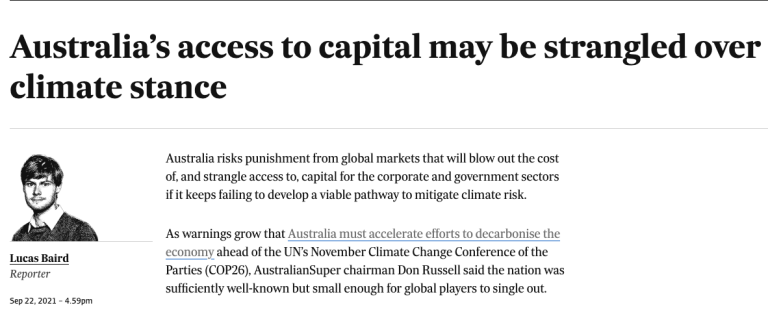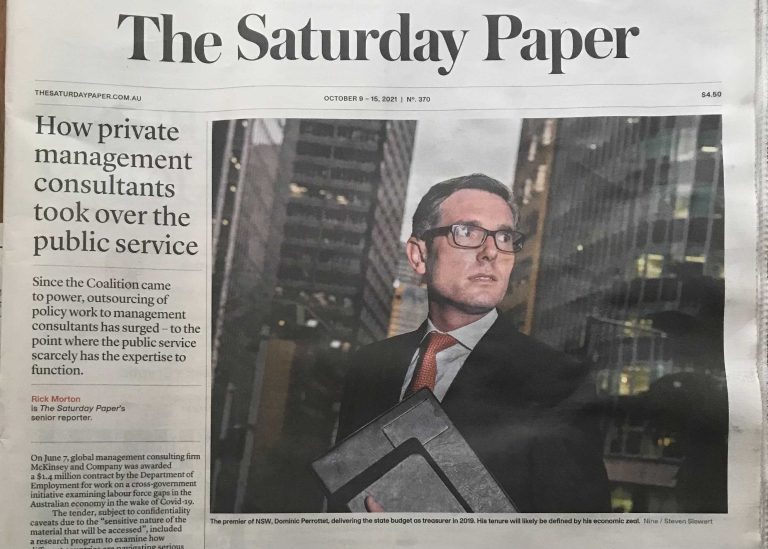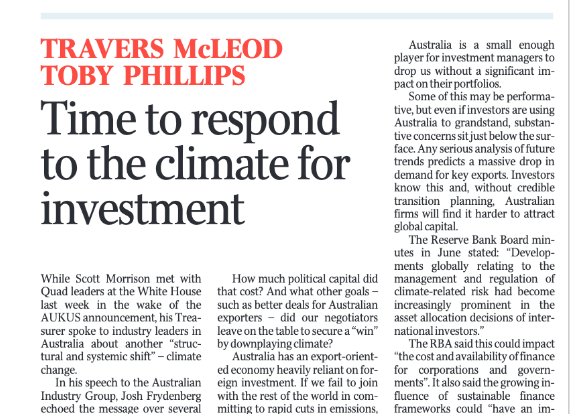Money and power sometimes walk hand in hand….
Rinehart thinks it is far too costly and difficult to build new mines in Australia. She is against the mineral resource rent tax and the carbon tax, which she claims will “will diminish Australia’s attractiveness to foreign investment”. (Luckily, the bosses at Korean steel-maker Posco apparently weren’t listening. They decided to invest $1.5 billion for a stake in one of Hancock’s iron ore mines shortly after this speech was made). She also wants to open up mining to overseas workers on short-term visas, and create “special economic zones” (read: tax havens) in the north-west “with policies conducive to opening and developing successful businesses, to enable more opportunity for exciting vision and development, with low taxation for those Australians who want to work and live in our north”.
Such attitudes are commonplace among Western Australia’s corporate elite; indeed, some of them Coalition policy. Getting rid of the mining tax and the carbon tax are scarcely fringe positions, after all. The difference between ordinary businesspeople and Coalition voters and Rinehart is … well, it’s the money. “The very rich are different to you and I,” remarked F. Scott Fitzgerald, “they have more money.” And for no-one is this truer than for Rinehart, who has the wealth to buy up large swathes of the media and run it according to her own prejudices, if she chooses.
Given Rinehart’s attitudes and proclivities, many have understandably begun to speculate about whether she really does intend to take over Fairfax completely, and if so, whether she could exert control over the media company’s editorial positions. The answers, I think, are yes, and yes.
There’s not a lot of point of owning a stake in a failing newspaper business unless you want to use it as a mouthpiece for your own political ideas. Even Rupert Murdoch understands this: News Corporation has long subsidised under-performing media assets like The Australian and the Wall Street Journal precisely because of the political clout they contribute.
And the answer to the question of whether a media owner can drive the editorial positions of the media outlets she owns should also be obvious with reference to the Murdoch examples.
Read the full article in New Matilda here.



